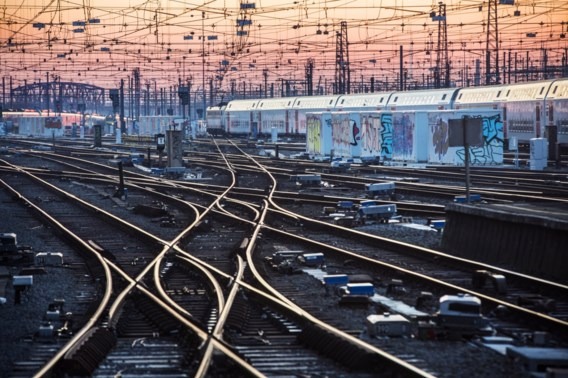The Belgian rail authority SNCB scored the lowest total for timekeeping in a survey of 13 European countries, De Tijd and L'Echo report. The comparison was carried out using 2017 figures by the platform for rail infrastructure managers in Europe (Prime). The study took five minutes and 29 seconds as its measure of lateness; if a train was only five minutes late, it was considered to be on time. In that respect, the Prime study was only slightly less forgiving than the SNCB itself, which operates a cut-off time of six minutes.
The time limit is a thorn in the flesh of rail users in Belgium, who point out that a train that is five minutes late may not be a serious problem if the user is at their destination, but it can make a massive difference if intending to change trains.
Belgian rail infrastructure company Infrabel is part of Prime, but not directly responsible for timekeeping. An Infrabel spokesperson pointed out that comparisons between rail networks in different countries is only of minimal application. In Belgium, for example, matters are complicated by the existence of the North-South rail bottleneck in Brussels, through which only a limited number of trains can pass in any time period, which can never be extended, and which affects not only Brussels users but trains that pass through the capital, such as the busy line from Ostend to Brussels, Liege and finally Eupen – virtually the entire length of the country.
Infrabel also pointed out that while the SNCB had recalculated its figures to conform to the Prime definition of lateness, other countries had left theirs unchanged, or given an estimate. In the UK, to take one example, long-distance trains are only considered late if they arrive at their destination more than 11 minutes behind schedule.
In recent days, rail traffic has been affected by fires in a signal box by the North station in Brussels, and by another lesser fire at Central. Both incidents were made worse by the North-South bottleneck.
Taking only the figures for 2017, Belgium came in 13th place. The Netherlands, Switzerland and Latvia led the table of nations. Throughout 2012-2017, however, Belgium took 12th place ahead of Italy.
Taking Belgium's figures, with the six-minute cut-off, 88.3% of trains were on time. The figure went down to 87.2% in 2018, while for the first four months of 2019, 90.7% of trains were on time – or up to six minutes late.
Alan Hope
The Brussels Times
The Brussels Times

